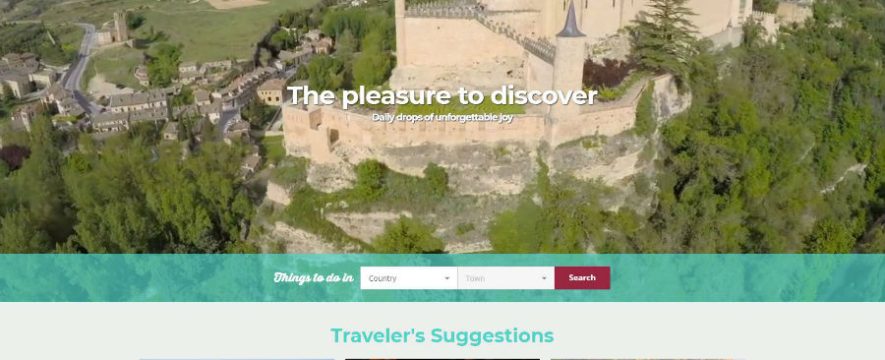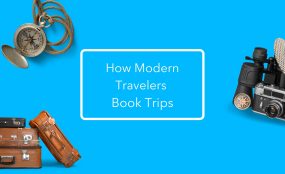Your travel agency needs a website. Every company needs a website, especially if it is involved with travel. In today’s world printed brochures and catalogues are losing their place to websites, social networking and e-marketing campaigns. So, you clearly need to get your website up and running.
There has been a lot of talk about what makes a good website, what are the most important things a website needs… I shall just point out to articles I liked a lot. One I found on TravelMole about how to increase the number of people who actually book against those who just browse is awesome. And another was on Multicom blog, about the 5 travel website design tips, which is quite good but lacks few other things I would point out.
So, here I shall make a list of what I believe are the most useful tips and features of a travel agency or tour operator website:
Clear navigation
If I cannot find a link to where I want to go in 10 seconds, I will be going to the next page. So, give me a clear explanation to whether I can find what I need on a website, and where to find it. Meaning, if I am looking for a hotel, I want a big menu/link/search box saying “Book a hotel”. I am an average customer, and I just want to get my task done. I do not care for the other 10,000 products you might have to offer, but I need to find what I want very quickly and easily.
Call-to-actions
This part is omitted in both articles I linked to above. If you want people to subscribe to a newsletter, there needs to be a highlighted button “Subscribe to newsletter”. If you want people to book your products, then every page and subpage about a hotel needs a call-to-action button pushing you to the next step: “Book now!”, “Check availability”. These call-to-action buttons or links need to be highlighted and bigger. It is a good idea to use verbs, as people associate verbs with actions. This way a “Send inquiry” text on a button is much better than “Inquiry form”. If you have a page or subpage which is not calling your client to do something, then you are just giving him the option to browse away.
Update (2018.): Some website visitors are not ready to commit immediately to our call-to-action calls. So there is a live chat as a solution for this problem. For more information check our article How to increase travel website bookings with live chat
Search box
If you have a search box, it must be easy to use. If you make a search box that can search by 27 different parameters, no-one will use it (except, perhaps, Sheldon Cooper from the Big Bang Theory). A search box needs to be simple and understandable. You can have an Advanced search box which allows you to filter through with many different parameters, but the initial search box, with which you are communicating to the general public, needs to be clear and simple.
Clear and accurate prices
Don’t you just hate it when people put “Price from 100,00 €”, and then there is not a single combination of dates and services that sums up to be 100,00 €? Well, I do. Make your prices clear. The person with the “Price from 100,00 €” that later charges you more might get a greater number of people initially coming to your site, however, their conversion rate is going to be way smaller than yours. Our advice is to clearly state everything that is being paid for and everything that is being saved (e.g. special offers and discounts). This will develop trust between you and your customers, and the customers will be coming back.
Stability
Your customer got an error? A 404 page? They are gone. Lost. Most probably forever. You must ensure all links on your site are working properly, all external links are well connected, all photo and video paths are properly defined, no programming error exists. This is the groundwork, and it is assumed it is always done but should be carefully rechecked, as in case of errors the loss of potential clients is a guarantee.
Quality content
This is also assumed but often overlooked. You can have the best system and the best design ever. But you need to have quality products to offer to your customers. You need to have products that they want to buy. And you need to think about how to present them in a way that your customers understand and can relate to. Is it videos? Is it large photo galleries? Is it testimonials? This is very individual, and it depends greatly on your brand and your targeted audience. But you should think about how they think, and communicate to them in the way that will make them feel most comfortable.
These are very general ideas. But, these are some foundations that must not be ignored when deciding on a website.
What do you think? What are the most important issues to think about when thinking about a travel website? Do you have any ideas to add to this? We would love to hear your opinion.
You can find some of travel websites and portals we did: Services: Travel website development



